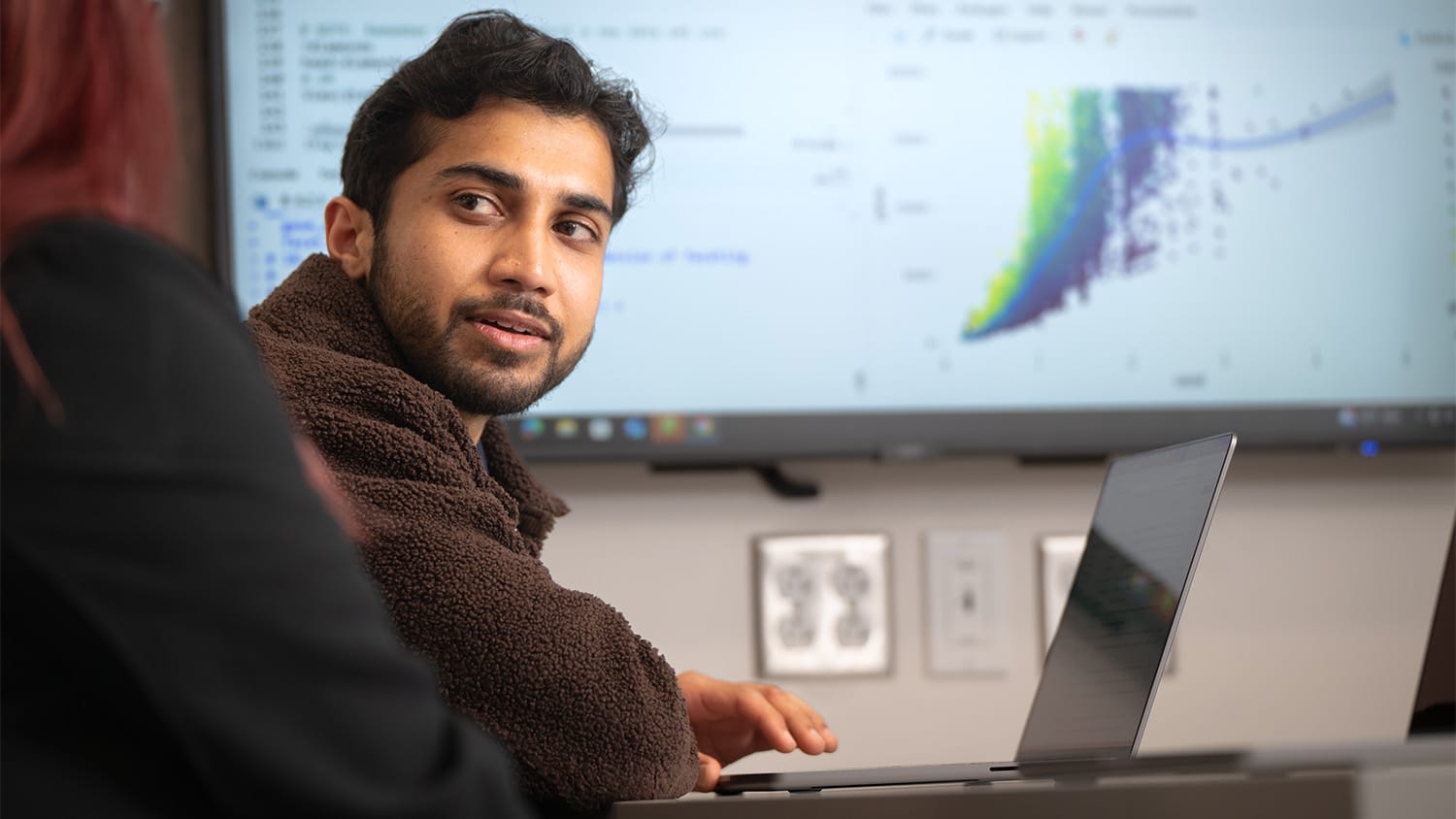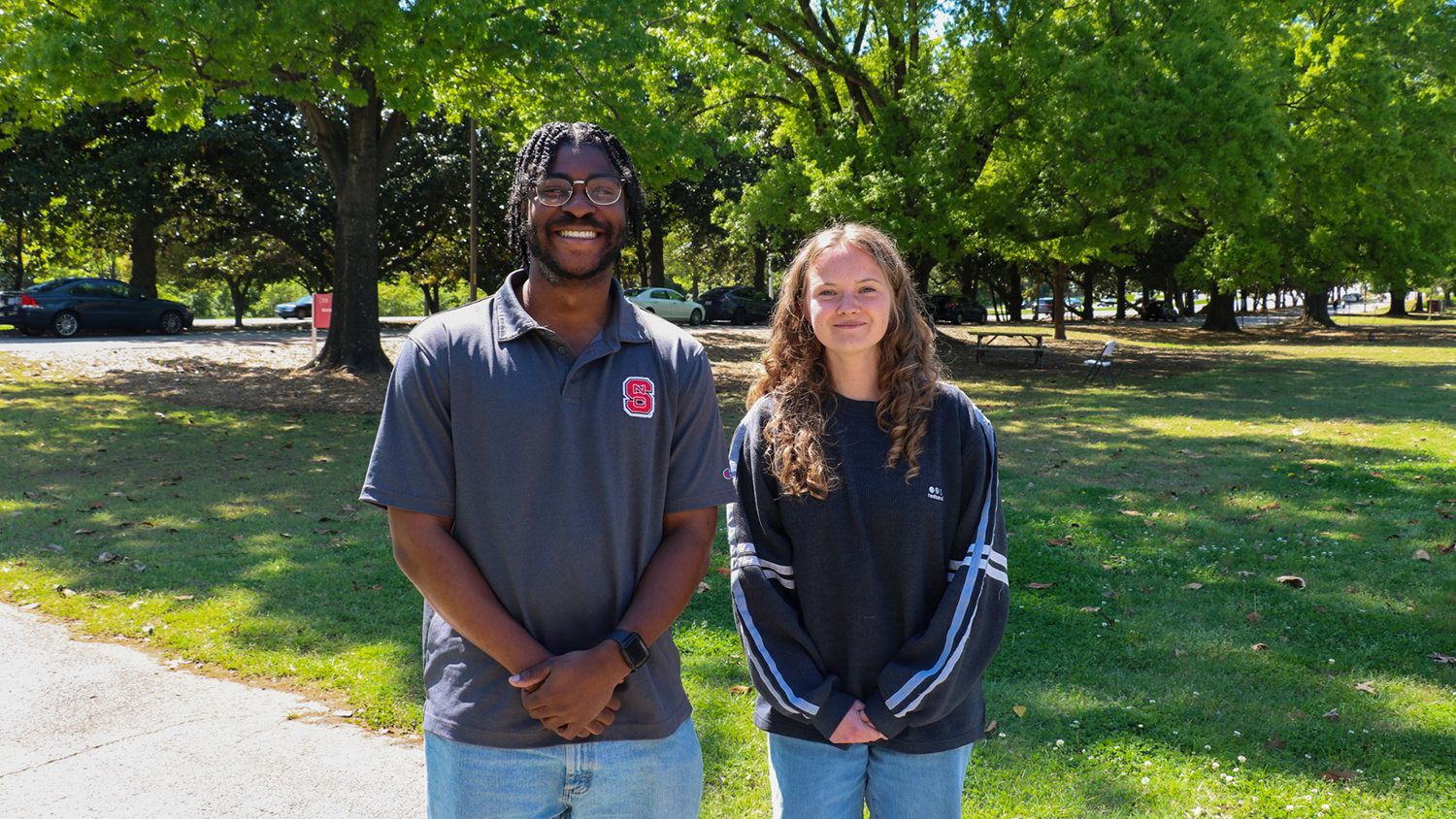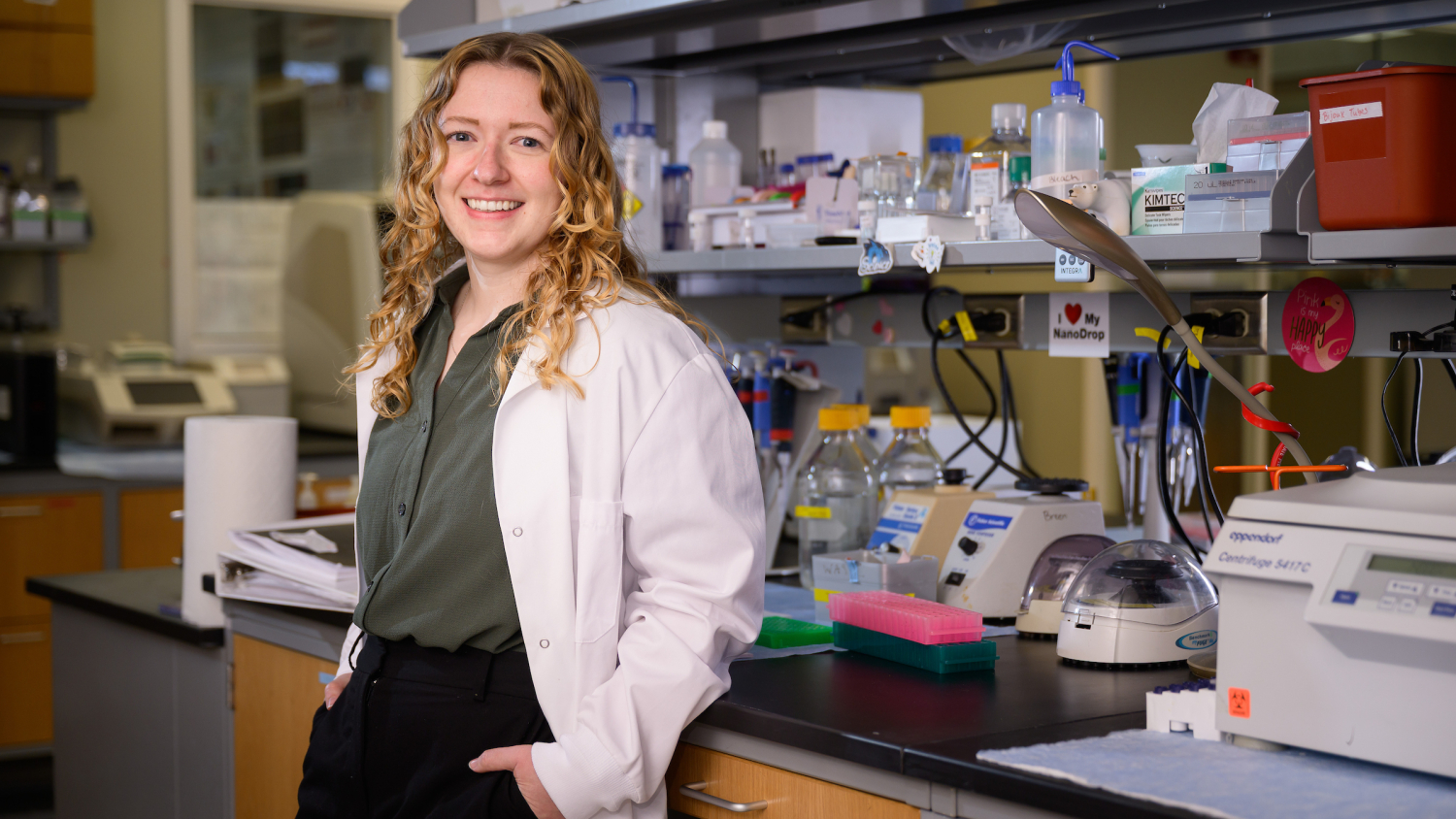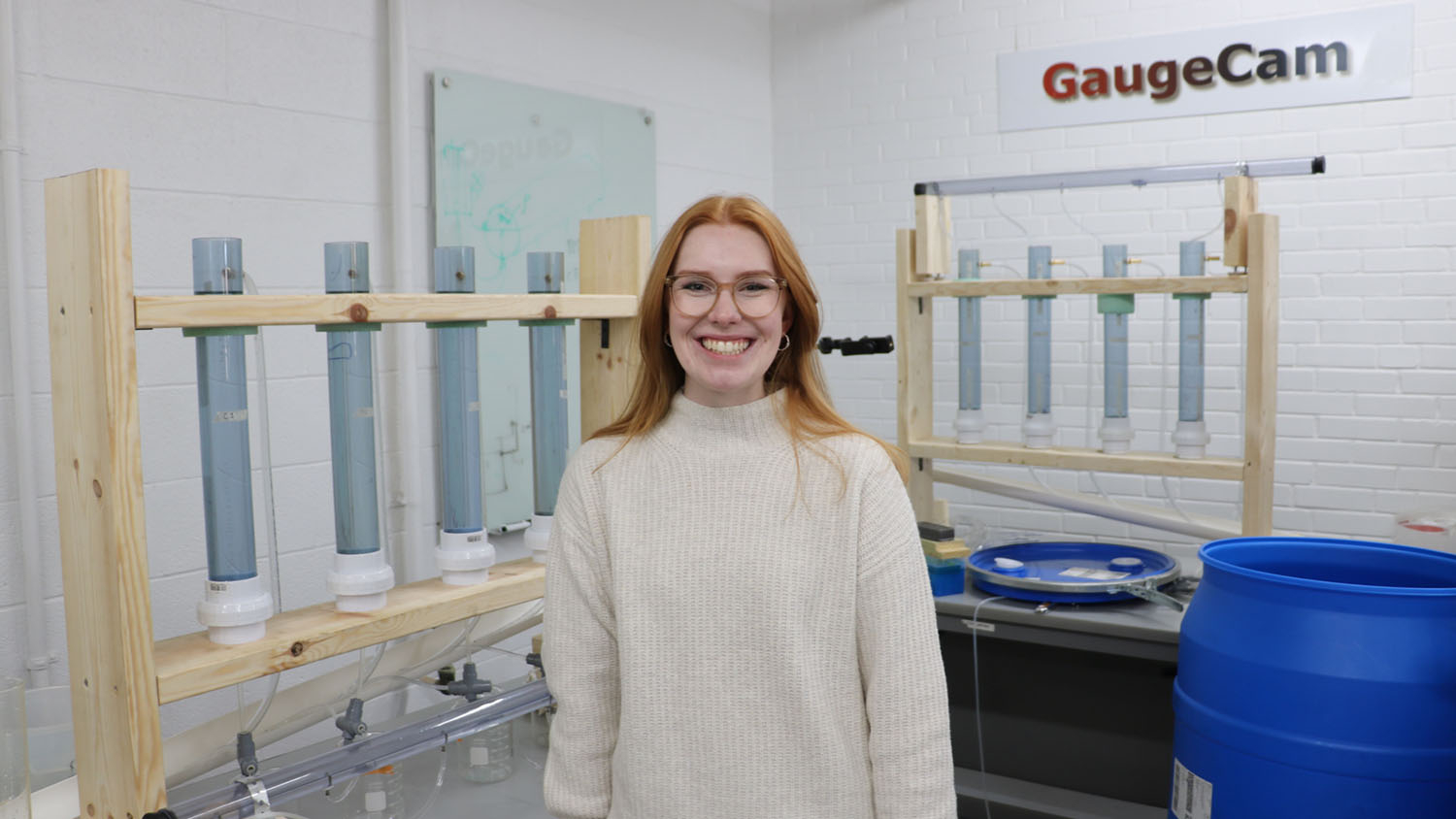When describing his work as a consultant for the Data Science Consulting program, Abhinandra (Abhi) Singh modified a popular quote from the Harry Potter series: “Help will always be given at NC State to those who ask for it.”
The Data Science Consulting Program is a joint effort between the NC State Libraries’ Data and Visualization Services department and the Data Science and AI Academy. The program — free and available to all students, faculty and staff — pairs users with graduate students like Singh who will help them find, prepare, analyze, understand and visualize data at any point in their research journey.
The first step in acquiring their assistance, as Singh’s comment suggested, is to make an appointment.
“The most basic work we do is help people figure out what they are trying to solve or what story they want to tell with their data,” Singh said. “I think sometimes people get so focused on the finer details of their work that they don’t think about how they would explain it or present it to someone else, and that’s where we come in.”
In its inaugural year, the Data Science Consulting Program has already helped hundreds of people, primarily graduate students, to design, collect and analyze their research data as well as prepare presentations. Consultations can be scheduled online or in person at either the Data Experience Lab on the third floor of D.H. Hill Jr. Library or in the Dataspace on the third floor of Hunt Library. In addition to consulting services, the program allows users to reserve a workstation at its library locations, where they can use computers with special data visualization software and machine learning functions.
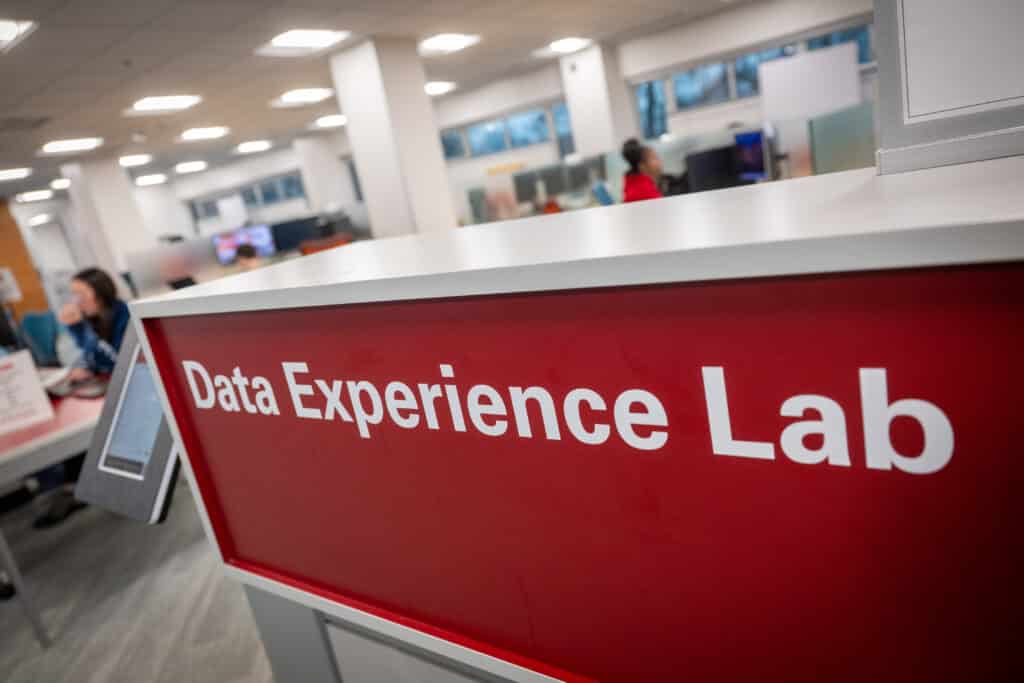
Running the Show
Co-leading the program are Mara Blake, head of Data and Visualization Services for the Libraries, and Emily Griffith, a professor of the practice in the Department of Statistics and director of consulting for the Data Science and AI Academy. Also serving on the program’s full-time faculty and staff are Alp Tezbasaran and Selene Schmittling, data science librarians; Kate Freeman, data science support specialist; and Shannon Ricci, associate head of Data and Visualization Services.
“We’re really excited about this partnership,” Blake said. “The Libraries and Data Science and AI Academy have collaborated behind the scenes for a long time, but this is the first year we’ve structurally integrated across campus to create a single place to get data science consulting help. ”
While similar programs exist at other universities, the collaboration between the two units allows them to pool resources and staff to encompass a wider range of academic disciplines.
“What we think sets us apart from most of the other consulting programs we know about is that ours is central to campus, and it’s interdisciplinary,” Blake said. “We hire students from all disciplines and try to represent the spectrum of colleges and departments that are across campus and serve all of those needs.”
The program’s student employment model is also unique. Eight graduate students with a wide range of backgrounds, experiences and software proficiencies make up the consulting team.
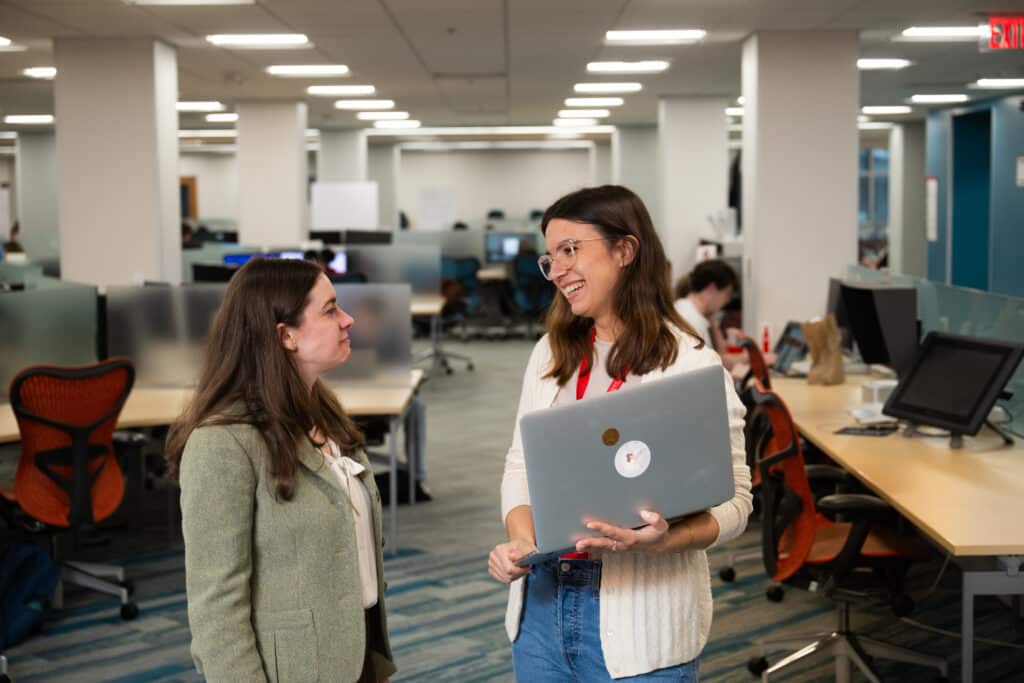
“These are folks who are actively learning and doing their own research, and they’re working with different faculty and departments across campus both in their own work and through these consulting sessions,” Freeman said. “People who take advantage of our consulting sessions benefit from the expertise of these really motivated students, who also happen to be super cool and nice.”
Ricci also works closely with the students and oversees the day-to-day operations of the program. Additionally, she teaches courses on best visualization practices for research papers or posters by request, as well as coding classes on programs like Python.
“This is a great opportunity for grad students who are looking for input or another perspective from their peers on their research, or for those who want to learn about new, cutting-edge technology that can help them showcase their work,” Ricci added.
Meet the Consultants
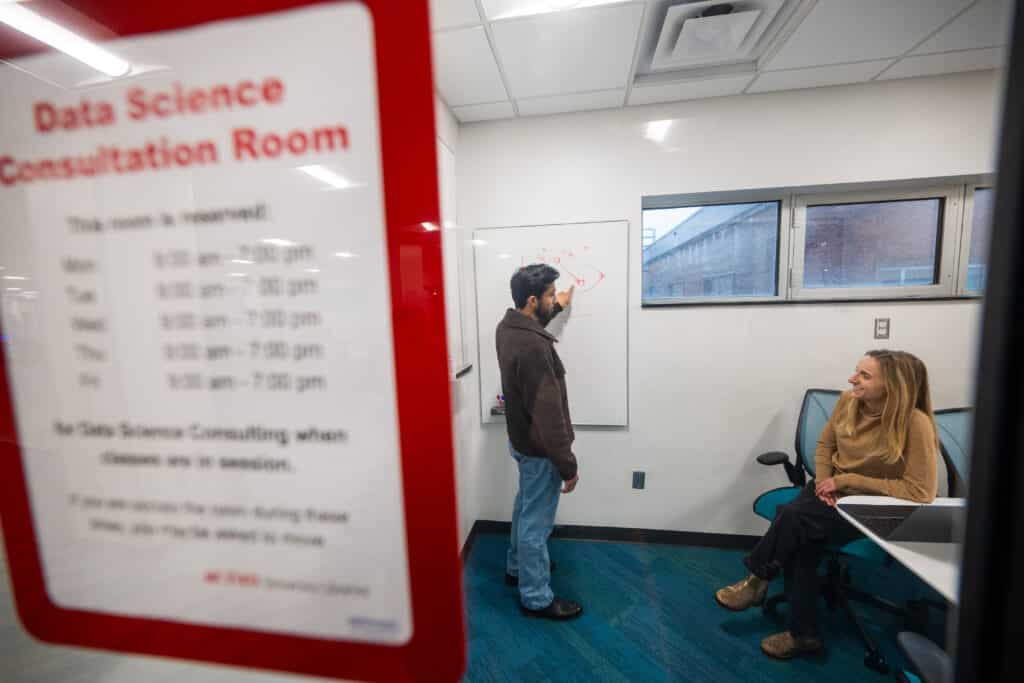
The consultants are a tight-knit group who love to learn. While most of their sessions are held one on one with students or staff working on graduate-level work, small groups of consultants have teamed up with faculty to assist with larger-scale research projects.
“I think one of the coolest things about this program is that the work we do spans disciplines,” said consultant Sydney Earl. “One day we could be working with someone who is studying chemistry and helping them describe data around chemical reactions, and the next we could be helping someone studying education to look at data around how effective a certain program has been in schools across North Carolina.”
Like the people she helps, Earl is conducting important research of her own. As a Ph.D. student in the applied psychology program, her work focuses on how people’s beliefs and attitudes influence their behavior. She is also analyzing data on loneliness and its effects on young adults.
“I love being a consultant because I’m always learning something new, and it really pushes me to think outside the box,” Earl said.
“I want people to feel like they can come in and not be shy about where their knowledge gap is.”
Another consultant, Franziska Bickel, is a Ph.D. student in the College of Education, and her research involves teaching high school students how they can use machine learning more responsibly. She is also looking into their motivations for learning about how new technologies and algorithms are developed. Coincidentally, motivating people to learn is one of Bickel’s goals in her research data consultations as well.
“I want people to feel like they can come in and not be shy about where their knowledge gap is,” Bickel said. “If they are open about that, it helps me understand what they need from me and how I can provide proper help.”
Singh is completing his graduate studies in operations research in industrial systems engineering, specializing in applied mathematics. His research involves developing offshore tidal turbines off the coast of North Carolina. The complexity of his own work is likely why he enjoys helping other graduate students solve problems.
“I think it’s especially common for Ph.D. students to be afraid to ask for help because they’ve been at the top of their classes for so long, so when they don’t know things they are afraid to ask,” Singh said. “My advice is to be brave enough to ask.”
This post was originally published in NC State News.
- Categories:
